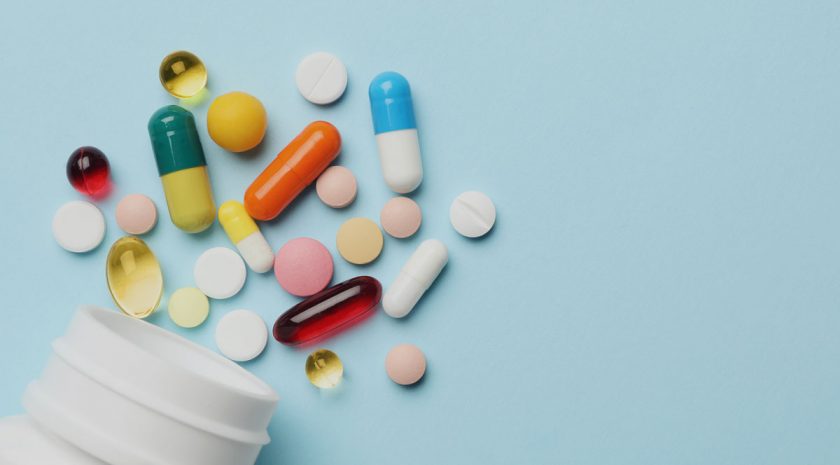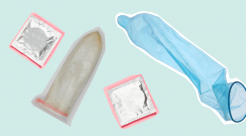
If you’re taking antidepressant medication, it’s not uncommon to feel as though it’s impacting your desire to have sex.
Selective serotonin reuptake inhibitors (SSRIs) are the most commonly prescribed antidepressant medication and have been shown to have sexual side effects including a lower desire to have sex.
In addition to a lower sexual desire, people have reported side effects including difficulty achieving an orgasm, difficulty obtaining or maintaining an erection, and reduced natural lubrication.
Whilst medication may ease experiences of depression, some people can feel ‘torn’ in taking their medication as having sex is an important part of their lives.
The good news is that there are ways to remain on your medication and address some of the challenges of low sexual desire and arousal.
How do antidepressants impact sexual desire?
SSRIs work to increase serotonin levels in the brain; this can reduce your sexual desire and make it harder to experience sexual pleasure.
For some people the increase in serotonin can increase desire but this depends on the person and the type of medication they are taking.
Some things to keep in mind:
- It can take a few weeks for your body to adjust to SSRIs. For SSRIs to work effectively and for side effects to pass it could take a few weeks. For some people their desire to have sex does return to their pre-medication level.
- It can be hard to know for sure if it’s the antidepressants impacting your sexual desire. For example, stress, self-esteem, relationship factors, alcohol, other medications and external factors may be impacting your desire to get in the ‘mood’.
The best way to find out what factors could be contributing to your lowered sexual desire is to speak to a doctor. A sexual health counsellor, psychologist or sexual health physician can also provide helpful support.
How can sexual desire be improved on antidepressants?
It’s a good idea to seek help from a health professional if low sexual desire is impacting your life. However, there are things you can try on your own that can help improve your desire for sex and intimacy:
Create ‘the right space and the right time’: Don’t just wait for the mood to strike. Scheduling in time to connect with your partner/s could lead to you experiencing physical intimacy and sex. It’s a good time to talk about what you and your partner/s like sexually and to touch each other in non-sexual or sexual ways to build intimacy. It can be helpful to also limit the potential for distractions so you can be present in the moment and avoid interruption.
Don’t focus on climaxing: Try to focus on the experience of intimacy and connection rather than the ‘climax’. Like anything, if you get ‘too inside your head’, then it can create unnecessary pressure. Remember you don’t have to climax to have ‘good sex’. Pleasurable sex is different for everyone. It can be about the connection, intimacy, exploration and fun – focus on the experience and not as if there is only one destination. If needed, gently remind your partner/s of this also, communication is key.
Try incorporating new things: Sex toys can be a fun way to explore new ways to experience pleasure. You could also try using lube, massages or sexting. Browsing or going shopping for toys together can be a fun and flirty way to build connection and plans for intimacy as well to communicate interests and fantasies that may wish to be explored.
Open communication is key
We can’t ever say this enough: communication is key. Being open and honest with your partner/s about the side effects of your medication can help reduce some of the internal pressure you may be feeling.
It is important not to blame anyone. A low sexual desire can cause frustration in a relationship, but it isn’t anyone’s ‘fault’.
Respectful and open communication with those you are intimate with can be beneficial in reducing possible internalized anxieties of sex and intimacy. It can also help give insight to your partner/s on how to better support you. This helps to build a better connection, reduce anxiety, and hopefully, increase arousal and pleasure.
Have a few more questions?
If you’d like more information you can speak to SHINE SA’s Sexual Healthline or contact your GP.
SHINE SA also offers counselling, our sexual health counsellors provide a non-judgmental and confidential service for you to talk about sexual health related concerns.
If you or anyone you know needs help with their mental health, you can speak to:
- Lifeline on 13 11 14
- Beyond Blue on 1300 224 636
- headspace on 1800 650 890
- QLife on 1800 184 527









